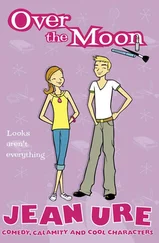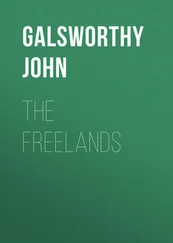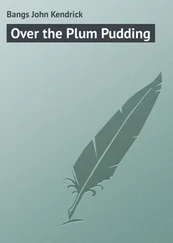John Galsworthy - Over the River
Здесь есть возможность читать онлайн «John Galsworthy - Over the River» весь текст электронной книги совершенно бесплатно (целиком полную версию без сокращений). В некоторых случаях можно слушать аудио, скачать через торрент в формате fb2 и присутствует краткое содержание. Жанр: Классическая проза, на английском языке. Описание произведения, (предисловие) а так же отзывы посетителей доступны на портале библиотеки ЛибКат.
- Название:Over the River
- Автор:
- Жанр:
- Год:неизвестен
- ISBN:нет данных
- Рейтинг книги:3 / 5. Голосов: 1
-
Избранное:Добавить в избранное
- Отзывы:
-
Ваша оценка:
- 60
- 1
- 2
- 3
- 4
- 5
Over the River: краткое содержание, описание и аннотация
Предлагаем к чтению аннотацию, описание, краткое содержание или предисловие (зависит от того, что написал сам автор книги «Over the River»). Если вы не нашли необходимую информацию о книге — напишите в комментариях, мы постараемся отыскать её.
Over the River — читать онлайн бесплатно полную книгу (весь текст) целиком
Ниже представлен текст книги, разбитый по страницам. Система сохранения места последней прочитанной страницы, позволяет с удобством читать онлайн бесплатно книгу «Over the River», без необходимости каждый раз заново искать на чём Вы остановились. Поставьте закладку, и сможете в любой момент перейти на страницу, на которой закончили чтение.
Интервал:
Закладка:
“I wouldn’t like to tell him. It’s so private. Besides, people don’t like being involved in matrimonial squabbles.”
“Is he married?”
“No.”
She saw him look at her intently, and remembered Clare’s laugh and words: “Dinny, he’s in love with you.”
“You’ll see him here tomorrow night,” Adrian went on. “Em’s asked him to dinner, I gather; Clare too, I believe. Quite candidly, Dinny, I don’t see anything to be done. Clare may change her mind and go back, or Corven may change his and let her stay without bothering about her.”
Dinny shook her head. “They’re neither of them like that. I must go and wash, Uncle.”
Adrian reflected upon the undeniable proposition that everyone had his troubles. His own at the moment were confined to the fact that his step-children, Sheila and Ronald Ferse, had measles, so that he was something of a pariah in his own house, the sanctity attaching to an infectious disease having cast his wife into purdah. He was not vastly interested in Clare. She had always been to him one of those young women who took the bit between their teeth and were bound to fetch up now and again with broken knees. Dinny, to him, was worth three of her. But if Dinny were going to be worried out of her life by her sister’s troubles, then, indeed, they became important to Adrian. She seemed to have the knack of bearing vicarious burdens: Hubert’s, his own, Wilfrid Desert’s, and now Clare’s.
And he said to his sister’s parakeet: “Not fair, Polly, is it?”
The parakeet, who was used to him, came out of its open cage on to his shoulder and tweaked his ear.
“You don’t approve, do you?”
The green bird emitted a faint chattering sound and clutched its way on to his waistcoat. Adrian scratched its poll.
“Who’s going to scratch her poll? Poor Dinny!”
His sister’s voice startled him:
“I can’t have Dinny scratched again.”
“Em,” said Adrian, “did any of US worry about the others?”
“In large families you don’t. I was the nearest—gettin’ Lionel married, and now he’s a judge—depressin’. Dornford—have you seen him?”
“Never.”
“He’s got a face like a portrait. They say he won the long jump at Oxford. Is that any good?”
“It’s what you call desirable.”
“Very well made,” said Lady Mont. “I looked him over at Condaford.”
“My dear Em!”
“For Dinny, of course. What do you do with a gardener who WILL roll the stone terrace?”
“Tell him not to.”
“Whenever I look out at Lippin’hall, he’s at it, takin’ the roller somewhere else. There’s the gong, and here’s Dinny; we’ll go in.”
Sir Lawrence was at the sideboard in the dining-room, extracting a crumbled cork.
“Lafite ‘65. Goodness knows what it’ll be like. Decant it very gently, Blore. What do you say, Adrian, warm it a little or no?”
“I should say no, if it’s that age.”
“I agree.”
Dinner began in silence. Adrian was thinking of Dinny, Dinny of Clare, and Sir Lawrence of the claret.
“French art,” said Lady Mont.
“Ah!” said Sir Lawrence: “that reminds me, Em; some of old Forsyte’s pictures are going to be lent. Considering he died saving them, they owe it to him.”
Dinny looked up.
“Fleur’s father? Was he a nice man, Uncle?”
“Nice?” repeated Sir Lawrence: “It’s not the word. Straight, yes: careful, yes—too careful for these times. He got a picture on his head, you know, in the fire—poor old chap. He knew something about French art, though. This exhibition that’s coming would have pleased him.”
“There’ll be nothing in it to touch ‘The Birth of Venus,’” said Adrian.
Dinny gave him a pleased look.
“That was divine,” she said.
Sir Lawrence cocked his eyebrow.
“I’ve often thought of going into the question: Why a nation ceases to be poetic. The old Italians—and look at them now!”
“Isn’t poetry an effervescence, Uncle? Doesn’t it mean youth, or at least enthusiasm?”
“The Italians were never young, and they’re enthusiastic enough now. When we were in Italy last May you should have seen the trouble they took over our passports.”
“Touchin’!” agreed Lady Mont.
“It’s only a question,” said Adrian, “of the means of expression. In the fourteenth century the Italians were expressing themselves in daggers and verse, in the fifteenth and sixteenth in poison, sculpture and painting, in the seventeenth in music, in the eighteenth in intrigue, in the nineteenth in rebellion, and in the twentieth their poetry is spelled in wireless and rules.”
“I did get so tired,” murmured Lady Mont, “of seein’ rules I couldn’t read.”
“You were fortunate, my dear; I could.”
“There’s one thing about the Italians,” continued Adrian; “century by century they throw up really great men of one sort or another. Is that climate, blood, or scenery, Lawrence?”
Sir Lawrence shrugged. “What do you think of the claret? Put your nose to it, Dinny. Sixty years ago, you two young women wouldn’t be here, and Adrian and I would be soppy about it. It’s as near perfect as makes no matter.”
Adrian sipped and nodded.
“Absolutely prime!”
“Well, Dinny?”
“I’m sure it’s perfect, dear—wasted on me.”
“Old Forsyte would have appreciated this; he had wonderful sherry. Do you get the bouquet, Em?”
Lady Mont, who was holding her glass with her elbow on the table, moved her nostrils delicately.
“Such nonsense,” she murmured, “almost any flower beats it.”
The remark caused complete silence.
Dinny’s eyes were the first to come to the level.
“How are Boswell and Johnson, Auntie?”
“I was tellin’ Adrian: Boswell’s taken to rollin’ the stone terrace, and Johnson’s lost his wife—poor thing. He’s a different man. Whistles all the time. His tunes ought to be collected.”
“Survivals of old England?”
“No, modern—he just wanders.”
“Talking of survivals,” said Sir Lawrence, “did you ever read Ask Mamma, Dinny?”
“No; who wrote it?”
“Surtees. You should. It’s a corrective.”
“Of what, Uncle?”
“Modernity.”
Lady Mont lowered her glass; it was empty.
“So wise of them to be stoppin’ this picture exhibition at 1900. D’you remember, Lawrence—in Paris, all those wiggly things we saw, and so much yellow and light blue—scrolls and blobs and faces upside-down? Dinny, we’d better go up.”
And when presently Blore brought the message—Would Miss Dinny go down to the study? She murmured:
“It’s about Jerry Corven. Don’t encourage your Uncle—he thinks he can do good, but he can’t.”…
“Well, Dinny?” said Sir Lawrence: “I always like talking to Adrian; he’s a well-tempered fellow with a mind of his own. I told Clare I would see Corven, but it’s no good seeing him without knowing what one wants to say. And not much then, I’m afraid. What do YOU think?”
Dinny, who had seated herself on the edge of her chair, set her elbows on her knees. It was an attitude from which Sir Lawrence augured ill.
“Judging from what he said to me today, Uncle Lawrence, his mind’s made up. Either Clare must go back to him or he’ll try to divorce her.”
“How will your people feel about that?”
“Very badly.”
“You know there’s a young man hanging round?”
“Yes.”
“He hasn’t a bean.”
Dinny smiled. “We’re used to that.”
“I know, but no beans when you’re out of bounds is serious. Corven might claim damages, he looks a vindictive sort of chap.”
“D’you really think he would? It’s very bad form, nowadays, isn’t it?”
Читать дальшеИнтервал:
Закладка:
Похожие книги на «Over the River»
Представляем Вашему вниманию похожие книги на «Over the River» списком для выбора. Мы отобрали схожую по названию и смыслу литературу в надежде предоставить читателям больше вариантов отыскать новые, интересные, ещё непрочитанные произведения.
Обсуждение, отзывы о книге «Over the River» и просто собственные мнения читателей. Оставьте ваши комментарии, напишите, что Вы думаете о произведении, его смысле или главных героях. Укажите что конкретно понравилось, а что нет, и почему Вы так считаете.












